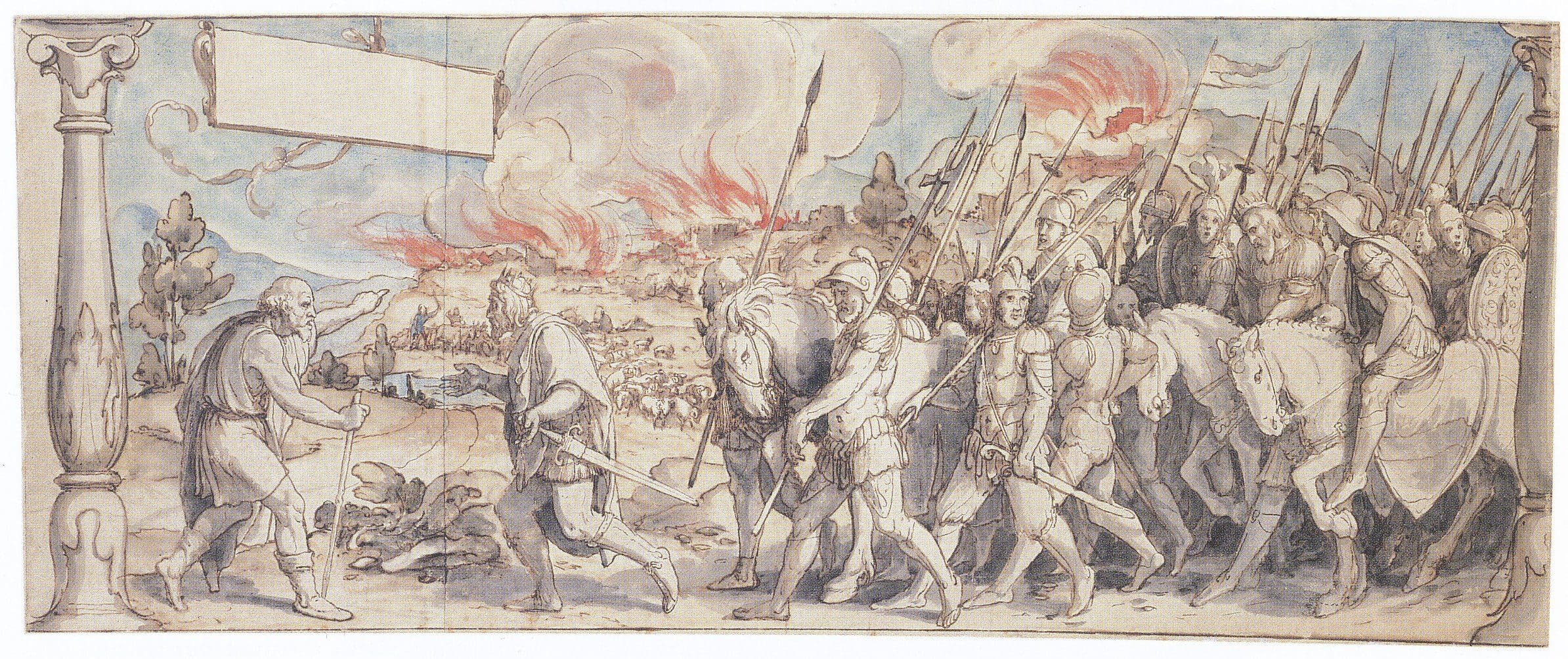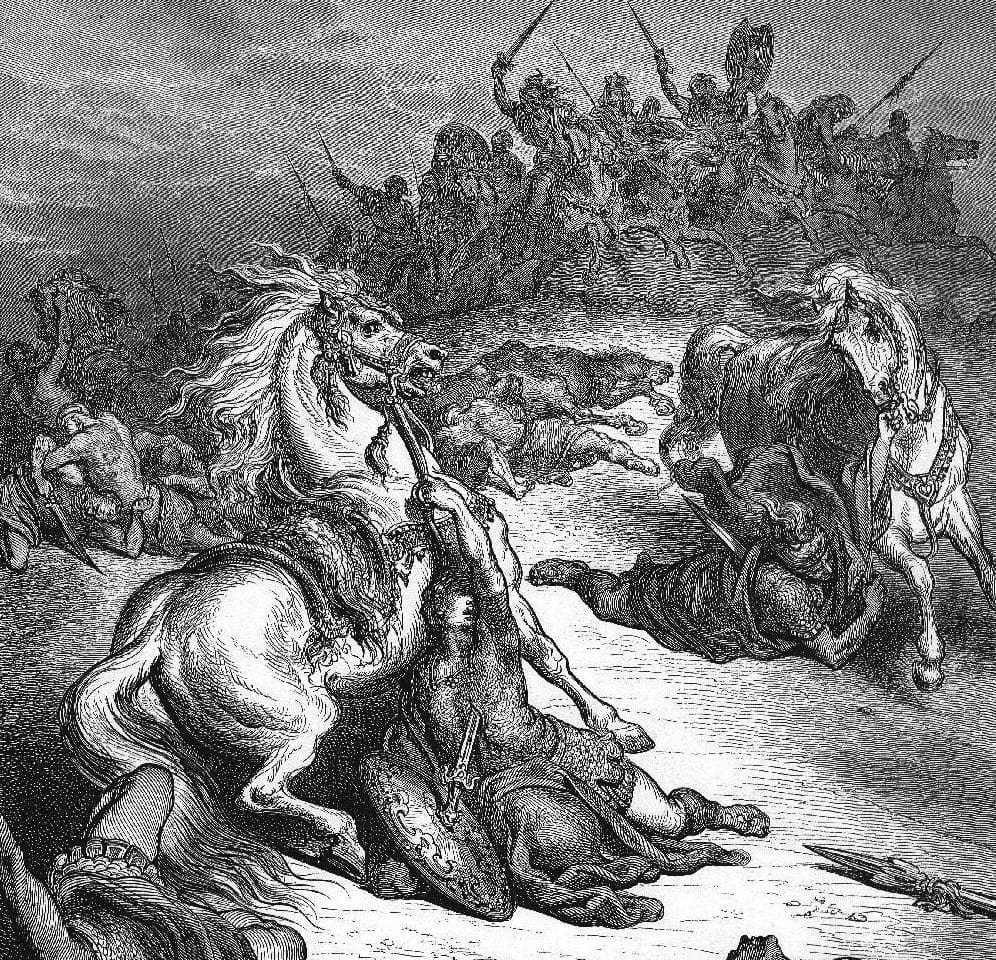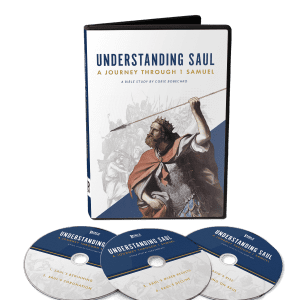By the time the reader has reached 1 Samuel 31, we’ve witnessed a horrific change in Saul’s character. He has gone from an unknown Israelite from the dishonoured tribe of Benjamin to a man called and anointed by God to become Israel’s first king––and a victorious king at that––he’s quite successful in his first military exploits, but then we see him transform into a disgraced, tormented, jealous king.
Saul’s character has really been drawn out for us throughout the text. In 1 Samuel 13 we see Saul motivated by fear to take responsibility that is not his. He offers sacrifices to God, against the Word of God. A crime for which, he’s told, that his sons will not rule after him, he will be like the judges before him, a single leader rather than a dynasty founder. We then see Saul making unwise, rash military decisions and largely being saved by his son Jonathan and I’m sure several of his military commanders as well.
“For rebellion is as the sin of divination, and presumption is as iniquity and idolatry. Because you have rejected the word of the Lord, he has also rejected you from being king.”
1 Samuel 15:23
In 1 Samuel 15 we’re told of a time when God gave direct instructions to Saul to bring judgment on the Amalekites, in the same way that Joshua had brought judgment on Jericho. Not only does Saul not follow this order of God, but he builds a monument to himself, just like the ones Israel had been commanded to tear down. Most disturbingly, in all of these cases of offense against God, rather than accept the accusations against him as true and ask for forgiveness he gives excuses and justifications for his actions. He explains rather than repents to the prophet of God, Samuel – who, let’s not forget, once acted as the judge of Israel – it would’ve been a very good idea to listen to a man like this! A proven prophet of God. Think about the arrogance involved in dismissing the messages that Samuel gives.
Of course, then comes what Saul is probably most famous for, his jealously of David, God’s anointed crowned prince of Israel. The man who will become Jerusalem’s dynasty founder. Saul proves himself an enemy of David by his repeated attempts to kill him. Even though Saul has moments of realization and clarity when he recognizes that what he is doing in trying to kill David is evil, he regularly gets swept back up in his envy, overpowered by his sinfulness. And the cycle begins again.

Let’s think then about this idea: Just like Israel in the time of the judges, Saul was called to be a man of God and he starts out well. Just like Israel, Saul ignores the commands of God and goes his own way. Just like Israel, Saul’s life goes in cycles, he becomes oppressed, Israel by outside enemies and armies, Saul by a tormenting spirit. The king that Israel asked for ends up being the perfect representation of them. When we keep thinking like this, we realise Saul perfectly caps off the time period of the judges. Not only does he live like Israel in this time period, he dies like a judge. Though he isn’t faithful to God he still manages to defeat the enemy of Israel with his final breath, much like the judge Samson. Only the enemy Saul is defeating for Israel is himself. I believe the author of 1 Samuel draws this out for us by the details of Saul’s death that he chooses to include. Saul kills himself by falling on his sword, then the Philistines find him dead and cut off his head just as David had cut off the head of the Philistine’s great warrior, Goliath. They take Saul’s armor and display it in their pagan temple as David had given Goliath’s sword to the Tabernacle. By deliberately disobeying the word of God, Saul has become the enemy of Israel, just like Goliath. As the transition between Judges and Kings, the first king of Israel dies like the sinful judge Samson, defeating the enemy of Israel but ingloriously. The message to Israel seems clear: When you ignore the commands of God, you become the enemy of God. And unfortunately, Saul would not be the only king of Israel to learn this the hard way.
If you’d like to watch a deeper presentation on King Saul, then check out Understanding Saul: A Journey Through 1 Samuel available right here on our website.

Corie Bobechko is a daily co-host, speaker, and writer of Bible Discovery. She also hosts a YouTube channel that shows how history and archaeology prove the Bible. Her heart for seekers and skeptics has led her to seek truth and share it with others. Corie also has a Bachelor of Theology from Canada Christian College.









